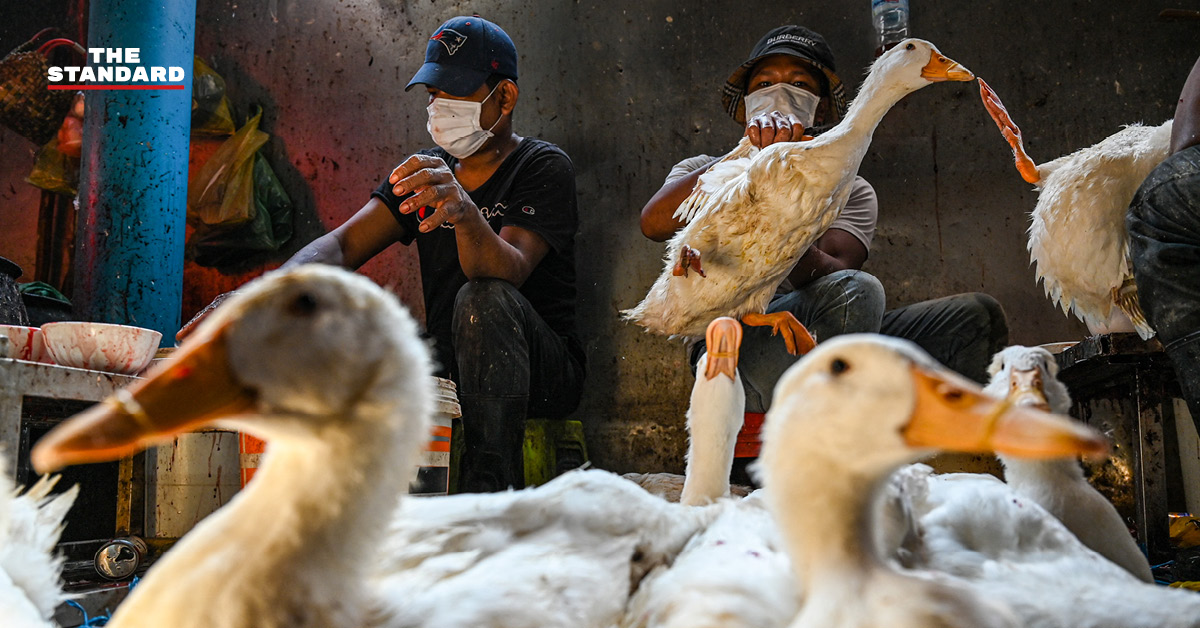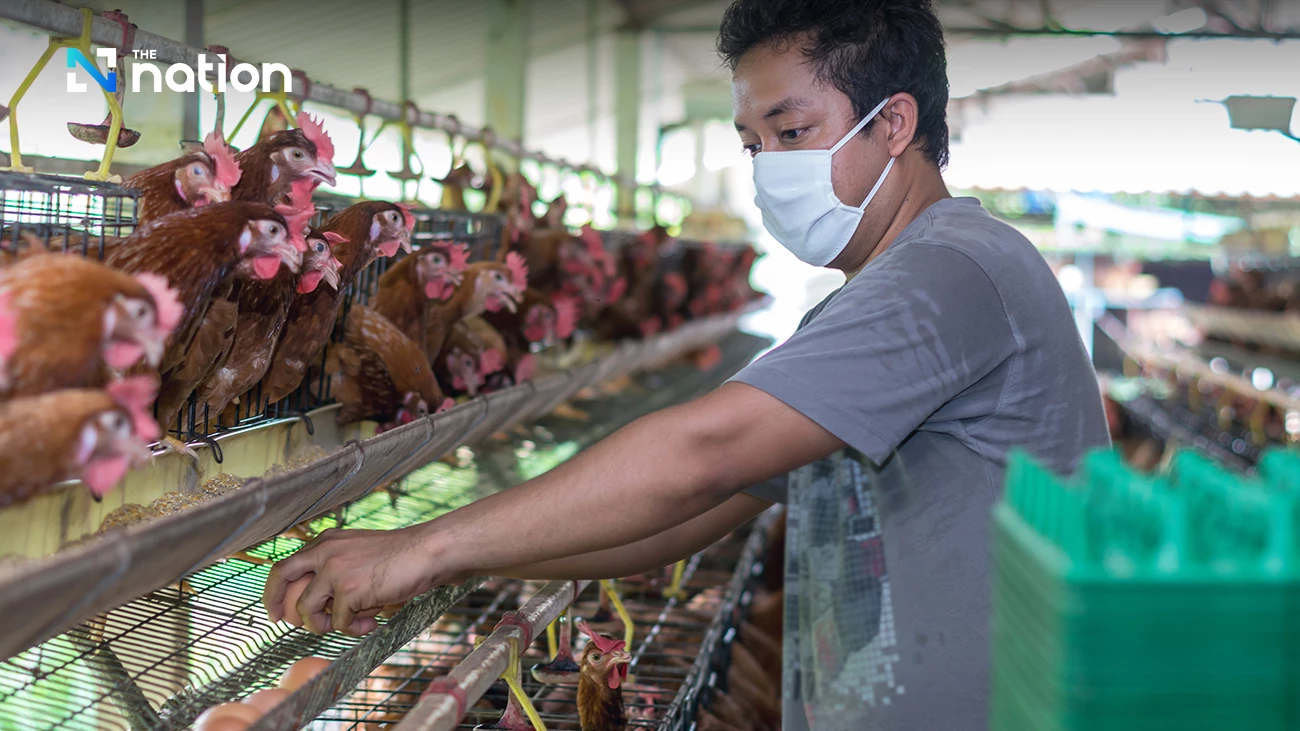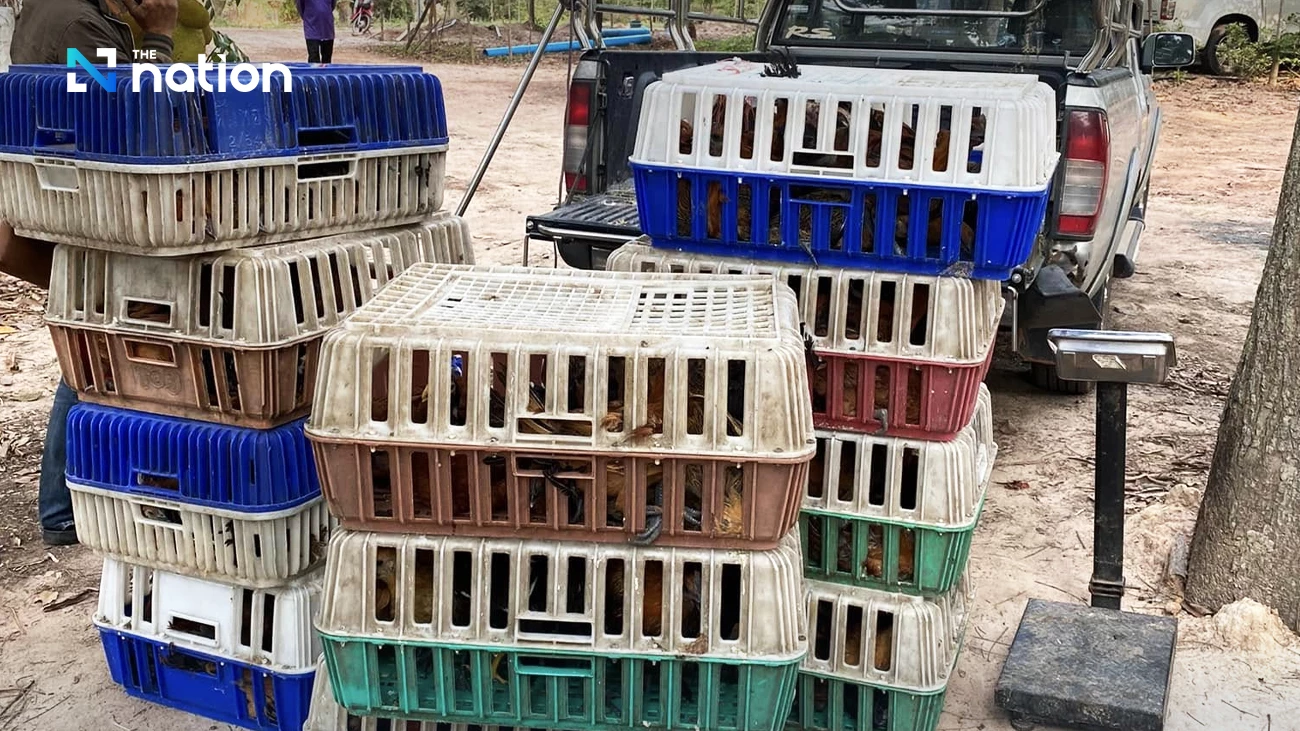Translated, emphasis is mine
8/4/25
2h
The government is tightening surveillance for H5N1 bird flu following a severe outbreak in Cambodia. Farmers are advised to monitor their close animals for symptoms.
Today (August 4), Deputy Government Spokesperson Anukul Prueksanusak revealed that the government is closely monitoring the spread of H5N1 bird flu and subvariants Clade 2.3.2.1e, particularly following the severe outbreak in Cambodia. This outbreak has raised concerns about health, society, and the economy, particularly regarding confidence in the country's livestock and public health sectors.
Anukul stated that H5N1 bird flu and subvariants Clade 2.3.2.1e are highly virulent and have a high potential for human transmission. The situation in Cambodia is particularly concerning. From 2023 to the present (2025), Cambodia has reported a total of 26 cases of avian influenza, with 11 deaths.
In 2025 alone, there have been 13 cases and 6 deaths, as of the latest report on July 22, 2025. Siem Reap Province has the highest number of reported cases, with 4.
Due to this worrying situation, the government, through the Department of Disease Control, Ministry of Public Health, has increased preventative measures and closely monitored border areas, particularly those connected to Siem Reap Province, to reassure the Thai public that they will not be affected by the spread of avian influenza from Cambodia.
Furthermore, the Department of Livestock Development, Ministry of Agriculture and Cooperatives, has instructed poultry farmers in the farm system to strictly adhere to the highest level of biosecurity, including:
Cleaning and disinfecting the barn and surrounding areas at least once a week;
Strictly controlling farm entry and exit; and spraying all vehicles;
Regularly cleaning and disinfecting at-risk areas. Promote the adoption of GAP (Good Agricultural Practices) or GFM (Good Farm Management) standards for poultry farming.
Anukul emphasized that while the risk of avian influenza spreading into Thailand is low, the government is not taking this lightly and urges poultry farmers nationwide to closely monitor their animals for signs of illness.
If any poultry is found to be sick or dead in any unusual manner, it must not be sold, distributed, or used for food. Immediately notify district livestock officials, livestock volunteers, village public health volunteers, and local livestock officials so that they can conduct inspections and implement disease control measures.
Farmers and the public can contact their district livestock office or nearest provincial livestock office for more information, or contact the Department of Livestock Development's hotline at 06 3225 6888, or submit their information through the DLD 4.0 application at any time.
8/4/25
2h
The government is tightening surveillance for H5N1 bird flu following a severe outbreak in Cambodia. Farmers are advised to monitor their close animals for symptoms.
Today (August 4), Deputy Government Spokesperson Anukul Prueksanusak revealed that the government is closely monitoring the spread of H5N1 bird flu and subvariants Clade 2.3.2.1e, particularly following the severe outbreak in Cambodia. This outbreak has raised concerns about health, society, and the economy, particularly regarding confidence in the country's livestock and public health sectors.
Anukul stated that H5N1 bird flu and subvariants Clade 2.3.2.1e are highly virulent and have a high potential for human transmission. The situation in Cambodia is particularly concerning. From 2023 to the present (2025), Cambodia has reported a total of 26 cases of avian influenza, with 11 deaths.
In 2025 alone, there have been 13 cases and 6 deaths, as of the latest report on July 22, 2025. Siem Reap Province has the highest number of reported cases, with 4.
Due to this worrying situation, the government, through the Department of Disease Control, Ministry of Public Health, has increased preventative measures and closely monitored border areas, particularly those connected to Siem Reap Province, to reassure the Thai public that they will not be affected by the spread of avian influenza from Cambodia.
Furthermore, the Department of Livestock Development, Ministry of Agriculture and Cooperatives, has instructed poultry farmers in the farm system to strictly adhere to the highest level of biosecurity, including:
Cleaning and disinfecting the barn and surrounding areas at least once a week;
Strictly controlling farm entry and exit; and spraying all vehicles;
Regularly cleaning and disinfecting at-risk areas. Promote the adoption of GAP (Good Agricultural Practices) or GFM (Good Farm Management) standards for poultry farming.
Anukul emphasized that while the risk of avian influenza spreading into Thailand is low, the government is not taking this lightly and urges poultry farmers nationwide to closely monitor their animals for signs of illness.
If any poultry is found to be sick or dead in any unusual manner, it must not be sold, distributed, or used for food. Immediately notify district livestock officials, livestock volunteers, village public health volunteers, and local livestock officials so that they can conduct inspections and implement disease control measures.
Farmers and the public can contact their district livestock office or nearest provincial livestock office for more information, or contact the Department of Livestock Development's hotline at 06 3225 6888, or submit their information through the DLD 4.0 application at any time.






Comment